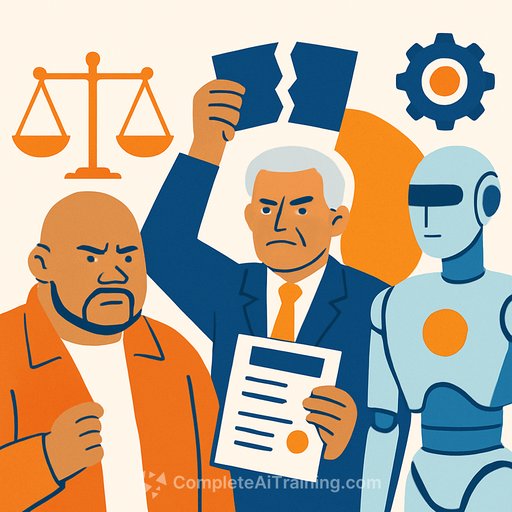Fat Joe Accuses Tyrone Blackburn of Using AI in Legal Citations
Fat Joe and his legal team have accused attorney Tyrone Blackburn of allegedly using artificial intelligence to generate legal citations in a motion to dismiss the rapper's defamation lawsuit. The suit targets Blackburn and Terrance Dixon, Joe's former hype-man.
The latest filing, highlighted by AllHipHop, claims Blackburn's motion contains “misrepresentations and fabrications of legal authority clearly generated by AI.” It points to “at least ten instances” where Blackburn cited case law that appears to be fabricated or “hallucinated” by AI tools.
Background of the Dispute
The conflict began when Terrance Dixon hired Tyrone Blackburn to defend him against Fat Joe’s defamation claims. Dixon alleges serious misconduct by Joe during their time working together, including witnessing Joe engage in illegal and unethical behavior.
- Sexual relations with minors
- Financial fraud
- Other disturbing accusations
Fat Joe’s Response
Fat Joe retained attorney Joe Tacopina and released a strong statement on social media addressing the allegations. He expressed frustration over personal losses and the impact of these accusations.
Fat Joe stated: “I've been tested the last few months - I've lost my big brother, my father, my mother and now I'm fighting against these disgusting lies. But please know I will not break and I will NEVER back down.”
He also addressed the betrayal he feels from former associates and the attempts to damage his reputation through false claims. Joe emphasized his resilience in the face of these challenges and dismissed any notion of being extorted.
“If you get fired for doing something wrong, just take the L and live with it. But instead, they plot on your downfall as they watch you move on with your life,” he wrote. “They decide to go after one of the things you value the most - your reputation. They figure they can make up the most insane stories and, if they threaten you with a lawsuit, then you'll pay and they'll feel like they finally won. Problem with your theory, I've never let anyone on the streets extort me, so how would I ever let a crooked attorney and a coward ex-hype man extort me?? I'm from the Bronx!”
Legal Implications of AI-Generated Citations
The allegation that Blackburn used AI to create false legal citations raises significant ethical and professional concerns. Legal professionals must ensure the accuracy and authenticity of cited authorities to maintain the integrity of legal proceedings. The use of AI tools in legal research is growing, but reliance on AI-generated content without proper verification can lead to serious consequences.
Fat Joe’s legal team’s claim of “hallucinated” case law points to a potential misuse of AI in legal arguments, which could undermine Blackburn’s credibility and impact the court's view of his motion.
For legal practitioners exploring artificial intelligence tools, it’s critical to verify all references independently and avoid overreliance on AI outputs. Reliable AI training resources can help attorneys understand both the benefits and limitations of these technologies. Interested professionals can explore courses on Complete AI Training for further learning.
Next Steps in the Case
In August, Blackburn attempted to have Fat Joe’s defamation suit dismissed. The new accusations about AI-generated citations add another layer of complexity to the ongoing litigation. The court will need to assess the validity of both the claims and the legal arguments presented.
As this case develops, it highlights the importance of diligence in legal research and the potential pitfalls of integrating AI without careful oversight.
Your membership also unlocks:






